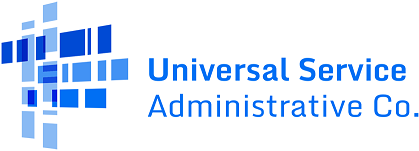Who Must Contribute
All intrastate, interstate, and international providers of telecommunications (including VoIP providers) within the United States, with limited exceptions (see Who is Exempt?), are legally obligated to file the FCC Forms 499.
The “United States” is defined as the contiguous United States, Alaska, Hawaii, American Samoa, Baker Island, Guam, Howland Island, Jarvis Island, Johnston Atoll, Kingman Reef, Midway Island, Navassa Island, the Northern Mariana Islands, Palmyra, Puerto Rico, the U.S. Virgin Islands, and Wake Island.
The term “telecommunications” refers to the transmission, between or among points specified by the user, of information of the user’s choosing, without change in the form or content of the information as sent and received.
Telecommunications providers and services include, but are not limited to, the following:
|
|
Who is Exempt?
FCC Form 499-A Exempt
The following entities are exempt from registering with USAC and filing the FCC Form 499-A:
- Marketing agents that market services on behalf of a telecommunications provider – the amounts remitted to, or retained by, the marketing agent are treated as expenses of the underlying provider and may not be deducted from the provider’s revenues.
- Providers that offer telecommunications for a fee exclusively on a non-common carrier basis, and are one of the following:
- Government entities that purchase telecommunications services in bulk on behalf of themselves, such as state networks for schools and libraries,
- Public safety and local governmental entities licensed under Subpart B of Part 90 of the Commission’s rules or any entity providing interstate telecommunications exclusively to public safety or government entities that do not offer services to others,
- Broadcasters, non-profit schools, non-profit libraries, non-profit colleges, non-profit universities, and non-profit health care providers,
- Systems integrators that derive less than five percent of their systems integration revenues from the resale of telecommunications, or
- Entities that provide telecommunications only to themselves or to commonly-owned affiliates.
Some providers may be exempt from contributing to the universal service fund but nevertheless must file FCC Form 499-A because they are required to contribute to TRS, NANPA, or LNPA. There are no exemptions from registering and filing the FCC Form 499-A for providers of VoIP services because they are subject to TRS contributions.
FCC Form 499-Q Exempt
A company that demonstrates a de minimis status is exempt from directly contributing to the universal service fund for a given year, and thus exempt from filing the FCC Form 499-Q, but may indirectly contribute through an underlying provider. All de minimis filers must, however, still file the FCC Form 499-A each year. See the De Minimis page to learn more about the de minimis exemption.
